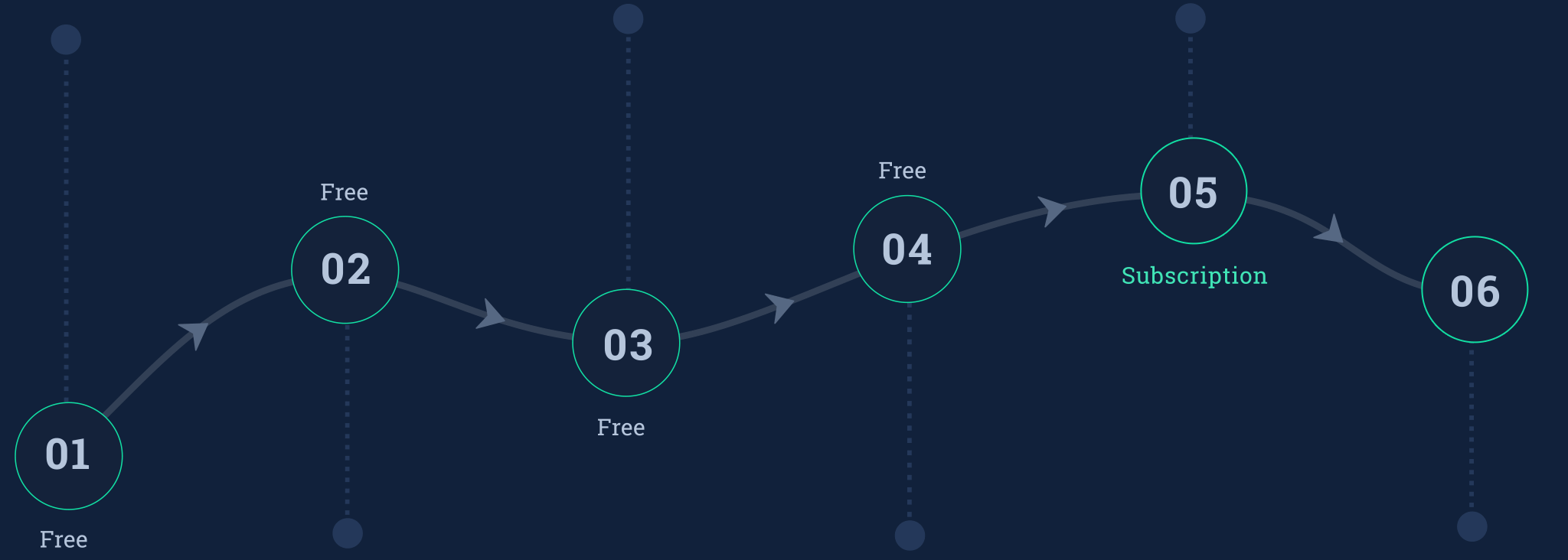
GDPR Compliance Solutions for Data Protection
Simplify data handling with Opsio’s GDPR compliance services
Opsio provides comprehensive GDPR compliance services to improve the security and maintain confidential data.
Get in touch with usIntroduction
Significance of GDPR compliance for enterprises
What is GDPR compliance?
GDPR services’ role in business operations to fast-track compliance adherence

GDPR services facilitate the visibility and control over data through data mapping, classification, and inventory management. Data mapping provides an understanding of the data journey within and outside the organization. Data classification ensures that confidential or regulated data is categorized based on the data type and risk level. Data inventories assure that organizations have centralized and up-to-date storage of personal data, ensuring that the organization meets the GDPR compliance requirements. One of the prominent GDPR compliance providers, Opsio, can seamlessly accelerate the entire process with the support of their GDPR experts, who are well-equipped to meet complicated security and compliance requirements.
How can your business benefit from GDPR compliance?
Boost Enterprise Compliance with GDPR Services

GDPR compliance assistance,
Available 24/7
Businesses without a dedicated security team often struggle to tackle security incidents. A GDPR compliance service provider such as Opsio plays a significant role in enabling enterprises to design, record, and implement an incident response plan in the event of a breach. They provide clear, step-by-step guidance to allow businesses to resolve issues swiftly, customized to meet the GDPR requirements, ensuring that responses occur at defined timelines, such as within 72 hours for GDPR.
Our services
Efficiently manage data with Opsio’s GDPR compliance services

GDPR audit
We thoroughly analyze your current data management process, security practices, and compliance policies to identify any missing elements and recommend measures to resolve the issues.

Compliance management
Our team ensures that we constantly observe and update your processes to make sure that your business is in alignment with ongoing GDPR regulations, enabling enterprises to seamlessly adapt to new legal requirements, avoiding fines.

Improved data protection
The significant aspect of Opsio’s GDPR compliance services is simplifying data management. Our team assists businesses with advanced data mapping techniques, strong data protection, and stringent data handling policies that meet GDPR compliance.

Personalized strategies
Opsio’s team conducts careful analyses to understand your business’s current data protection practices, identifying areas that need to be improved to meet GDPR requirements. Our team provides a plan to avoid risks associated with non-compliance.

Minimized expenses
Data breaches and a lack of adherence to GDPR compliance regulations

Practices of industry standards
Adhering to global standards of regulatory compliance, like GDPR, enables businesses to earn a reputation for being customer satisfaction-oriented by prioritizing the safety of their customers’ personal information.
Key benefits
Ensure enhanced data protection with Opsio’s GDPR consulting services
- Performs GDPR audits to gain insights required to tackle complexities
- GDPR analysis to locate gaps within your business processes
- Reduce disruption and incorporate data protection within every aspect of business operations
- Employing measures to enhance your business operations by improving compliance tools
- Personalized GDPR compliance services tailored to your business requirements
- Refined data handling processes to improve operational efficiency
- Strengthen your business reputation and build trust with advanced compliance methods
- Minimize costs and enhance the utilization of your resources with refined compliance measures
Industries we serve
GDPR compliance services tailored to various industries
Technology Providers
Opsio’s GDPR compliance services enable technology providers to meet the regulatory requirements necessary to enter the EU market and to partner with larger enterprises that demand strict compliance.
Public Sectors
Public sector organizations manage large amounts of confidential data. A GDPR compliance provider like Opsio provides the technical expertise to implement GDPR requirements, enabling organizations to avoid risks and fines.
BFSI
While customer trust is a top priority in the BFSI sector, Opsio’s team assures that sensitive and financial data are managed lawfully, transparently, and safely, strengthening customer confidence and enhancing brand loyalty.
Telecom
Opsio’s GDPR compliance services aid the telecom industry in processing large amounts of customer data. Our team provides assistance in data mapping, monitoring, and classifying data, which is essential to achieve GDPR compliance.
Stay Ahead of the Cloud Curve
Get monthly insights on cloud transformation, DevOps strategies, and real-world case studies from the Opsio team.
Why choose Opsio?
Opsio: A comprehensive GDPR compliance provider
Opsio offers 24/7 GDPR compliance assistance to ensure that your business does not face penalties or reputational damage due to data breaches. As a renowned GDPR compliance services provider, Opsio and its team of experts analyze and update your operations to align your business with current compliance levels.
GDPR Compliance Evolution: Your Opsio Roadmap To Success
Customer Introduction
Introductory meeting to explore needs, goals, and next steps.
Proposal
Onboarding
The shovel hits the ground through onboarding of our agreed service collaboration.

Assessment Phase
Compliance Activation
Run & Optimize
GDPR Compliance Solutions FAQ
What steps can my company take to ensure GDPR compliance when storing and processing customer data in the cloud?
Ensuring GDPR compliance when storing and processing customer data in the cloud is crucial for any company that values data privacy and security. To achieve this, your company can take several steps to mitigate risks and protect sensitive information.
First and foremost, it is essential to understand the GDPR regulations and how they apply to your specific business operations. This includes knowing what types of data you are collecting, where it is being stored, and how it is being processed. Conducting a thorough data audit can help identify any potential areas of non-compliance and allow you to take corrective action.
Next, you should carefully vet any cloud service providers that you are considering working with to ensure they have robust data protection measures in place. This includes encryption protocols, access controls, and data breach response procedures. It is also important to have clear contractual agreements in place that outline each party’s responsibilities regarding data protection and compliance.
Additionally, implementing strong data security measures within your own organization is key to GDPR compliance. This includes regular security audits, employee training on data protection best practices, and implementing multi-factor authentication for accessing sensitive information.
Finally, it is important to regularly review and update your data protection policies and procedures to ensure they align with current GDPR regulations. This may involve working with legal counsel or data protection experts to stay abreast of any changes to the law and adjust your practices accordingly.
By taking these proactive steps, your company can demonstrate a commitment to data privacy and security, build trust with customers, and avoid costly fines for non-compliance with GDPR regulations.
What are the potential consequences of failing to comply with GDPR regulations when storing and processing customer data in the cloud?
Failing to comply with GDPR regulations when storing and processing customer data in the cloud can have severe consequences for a business. The General Data Protection Regulation (GDPR) was implemented to protect the personal data of individuals within the European Union and ensure that companies handle this data responsibly. As an IT consultant working with Opsiocloud.com, it is crucial to understand the potential ramifications of non-compliance with GDPR regulations.
One of the most significant consequences of failing to comply with GDPR regulations is the risk of hefty fines. The GDPR allows for fines of up to 4% of a company’s global annual revenue or €20 million, whichever is higher. These fines can have a devastating impact on a business’s financial health and reputation. In addition to financial penalties, non-compliance can also result in legal action, reputational damage, and loss of customer trust.
Furthermore, failing to comply with GDPR regulations can lead to data breaches and security vulnerabilities. Storing and processing customer data in the cloud without proper safeguards in place can leave this sensitive information vulnerable to cyberattacks and unauthorized access. This can result in data breaches, identity theft, and other security incidents that can harm both the affected individuals and the company responsible for safeguarding their data.
In conclusion, it is essential for Opsiocloud.com to prioritize compliance with GDPR regulations when storing and processing customer data in the cloud. By doing so, the company can protect its reputation, avoid financial penalties, and ensure the security and privacy of its customers’ data. As an IT consultant, it is crucial to work closely with Opsiocloud.com to implement robust data protection measures and ensure compliance with GDPR regulations to mitigate these potential consequences.
How can OpsioCloud help my company navigate the complexities of GDPR compliance when storing and processing customer data in the cloud?
OpsioCloud can help your company navigate the complexities of GDPR compliance when storing and processing customer data in the cloud by providing a comprehensive and tailored approach to data protection and privacy. As an IT consultant, OpsioCloud understands the importance of compliance with GDPR regulations and the potential risks of non-compliance.
OpsioCloud can assist your company in conducting a thorough assessment of your current data storage and processing practices to identify any potential gaps or vulnerabilities in relation to GDPR requirements. This assessment will help to determine the necessary steps to achieve compliance and mitigate any risks associated with storing and processing customer data in the cloud.
OpsioCloud can also provide guidance on implementing robust data protection measures, such as encryption, access controls, and data retention policies, to ensure that customer data is securely stored and processed in accordance with GDPR regulations. Additionally, OpsioCloud can assist in developing and implementing data breach response plans to minimize the impact of any potential breaches on your company and its customers.
By partnering with OpsioCloud, your company can benefit from the expertise and experience of our IT consultants who are well-versed in GDPR compliance and data protection best practices. With OpsioCloud’s support, your company can navigate the complexities of GDPR compliance with confidence and ensure that customer data is handled securely and responsibly in the cloud.